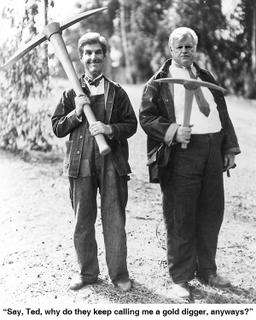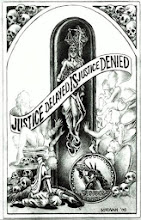
Kennedy Flip-Flops on Quizzing High Court Nominees
By Jeff Johnson
CNSNews.com
Senior Staff WriterJuly 28, 2005
(CNSNews.com) -- Supreme Court nominee John G. Roberts "will be expected to answer fully" any questions about his views on controversial issues that could come before the court in the future, according to Sen. Edward Kennedy (D-Mass.). But, during the 1967 confirmation debate over future Justice Thurgood Marshall, Kennedy argued that Supreme Court nominees should "defer any comments" on such matters.
In his June 20, floor speech responding to President Bush's nomination of Roberts to the Supreme Court, Kennedy argued that senators "must not fail in our duty to the American people to responsibly examine Judge Roberts' legal views."
Kennedy listed a number of issues, including workers' rights, health care and environmental regulations, that he considers important.
"Each of these issues, and many others, [have] been addressed by the Supreme Court in recent years," Kennedy said. "In many of these cases, the Court was narrowly divided, and these issues are likely to be the subject of future Court decisions in the years to come."
The Massachusetts Democrat said he is troubled by Roberts' strict interpretation of the Constitution's "commerce clause" and added that "other aspects of Judge Roberts' record also raise important questions about his commitment to individual rights.
"Because Judge Roberts has written relatively few opinions in his brief tenure as a judge, his views on a wide variety of vital issues are still unknown," Kennedy charged. "What little we know about his views and values lends even greater importance and urgency to his responsibility to provide the Senate and the American people with clear answers."
Kennedy listed examples of conservative positions Roberts had argued on behalf of both private clients and as the principle deputy solicitor general for the administration of President George H. W. Bush.
"Judge Roberts represented clients in each of these cases, but we have a duty to ask where he stands on these issues," Kennedy continued. "I join my colleagues in the hope that the process will proceed with dignity. But the nominee will be expected to answer fully, so that the American people will know whether Judge Roberts will uphold their rights."
During the 1967 confirmation debate over the nomination of then-Solicitor General Thurgood Marshall to the Supreme Court, however, Kennedy held a different view about the types of questions the nominee should be required to answer. Film footage obtained by Cybercast News Service shows Kennedy's response to the prospect of senators asking Marshall questions about how he might rule in future cases.
"We have to respect that any nominee to the Supreme Court would have to defer any comments on any matters, which are either before the court or very likely to be before the court," Kennedy said during a 1967 press conference. "This has been a procedure which has been followed in the past and is one which I think is based upon sound legal precedent." See Video
Marshall was serving President Lyndon Johnson as solicitor general when he was nominated in the summer of 1967. Prior to that, he had been an attorney for the NAACP, and had successfully argued the Brown v. Board of Education Supreme Court case that racially integrated the nation's public schools. Marshall's nomination was opposed by Southern Democrats who feared his confirmation would further the cause of racial equality in the United States, but he was confirmed by a vote of 69 to 11 on Aug. 30, 1967.
Multiple calls to Sen. Kennedy's office seeking comment for this report were not returned.


0 Comments:
Post a Comment
<< Home